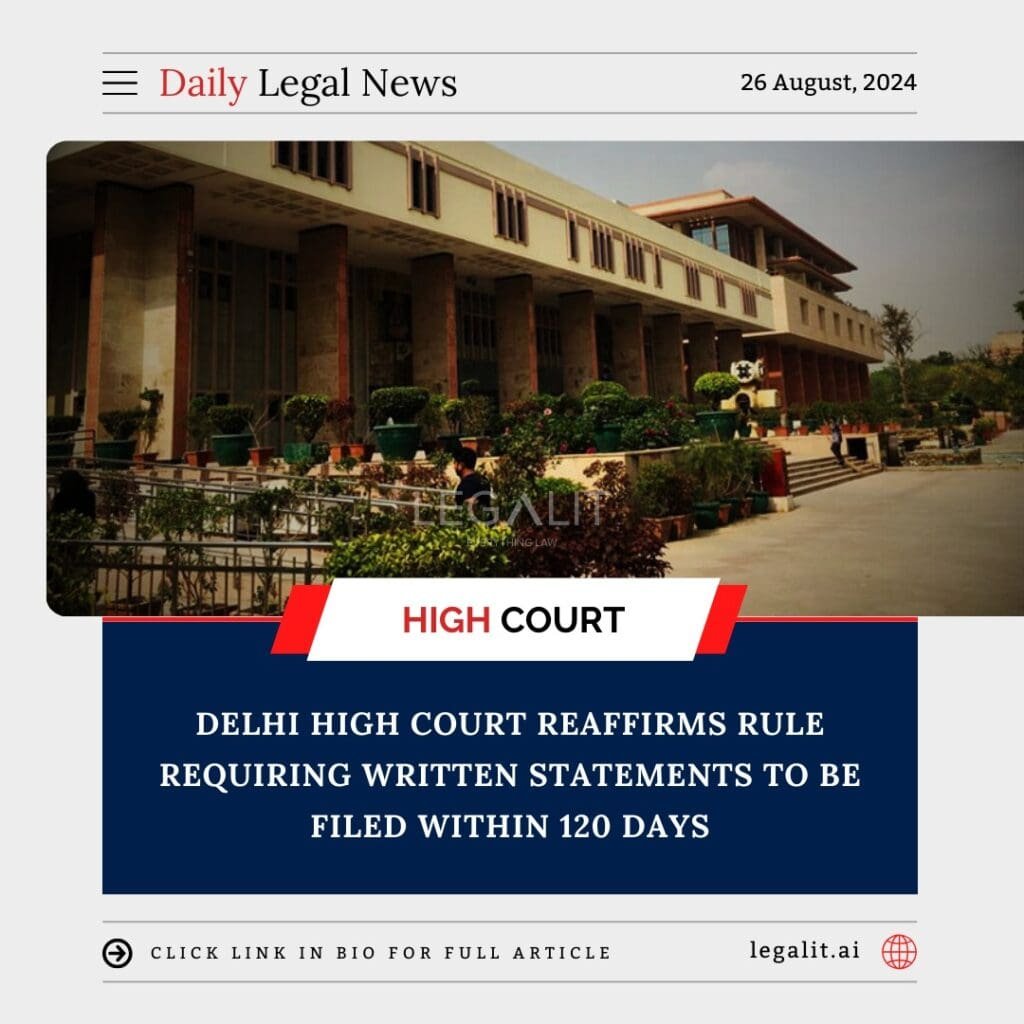
In a recent judgment, the Delhi High Court has upheld its original side rule that mandates the filing of written statements within 120 days of the commencement of a legal suit. This decision is significant as it reinforces the court’s commitment to procedural efficiency and timely case management within the judicial system.
Understanding the Rule:
- Purpose of the 120-Day Rule: The 120-day rule is designed to ensure that legal proceedings proceed without unnecessary delays. Written statements, which are crucial documents in any lawsuit, allow defendants to formally respond to the claims made against them. This rule aims to balance the need for adequate preparation time with the need to avoid protracted delays in the resolution of cases.
- Procedural Efficiency: By adhering to the 120-day timeframe, the Delhi High Court seeks to streamline court procedures and manage case flow effectively. This rule helps in reducing the backlog of cases and ensures that disputes are resolved in a timely manner, aligning with the broader goal of enhancing the efficiency of the judicial process.
Key Aspects of the Ruling:
- Affirmation of Established Protocols: The court’s decision to uphold the rule underscores its commitment to maintaining procedural norms. The affirmation of this rule highlights the importance of following established protocols to ensure orderly and timely conduct of legal proceedings.
- Impact on Litigants and Legal Practitioners: For litigants, the ruling serves as a reminder of the importance of adhering to deadlines. Defendants must file their written statements within the 120-day period to ensure their responses are considered. Failure to comply with this deadline could lead to default judgments or other procedural disadvantages.
- Encouraging Timely Legal Processes: The enforcement of the 120-day rule supports the court’s objective of expediting legal processes. By ensuring that written statements are filed promptly, the court helps in advancing cases and minimizing delays, which is beneficial for all parties involved.
- Legal Precedent: This ruling establishes a clear precedent regarding adherence to procedural deadlines. It serves as a guideline for future cases and reinforces the necessity of complying with court rules to maintain the integrity and efficiency of the legal system.
Implications for the Legal System:
- Improved Case Management: Upholding the 120-day rule contributes to better case management by setting clear deadlines for key procedural actions. This helps in organizing court schedules and ensuring that cases progress smoothly through the judicial process.
- Enhanced Compliance: The court’s decision may lead to increased compliance with procedural deadlines among litigants and legal professionals. Adherence to such rules can facilitate a more streamlined and orderly legal process.
- Impact on Legal Strategies: Legal practitioners may need to adjust their strategies to ensure timely submission of written statements. Effective case management and timely responses can prevent procedural complications and enhance the effectiveness of legal representation.
Conclusion:
The Delhi High Court’s decision to uphold the rule mandating the filing of written statements within 120 days is a reaffirmation of the importance of procedural efficiency in the legal system. By enforcing this rule, the court aims to ensure that legal proceedings are conducted in an orderly and timely manner, benefiting both the judicial system and the litigants.
This ruling highlights the court’s dedication to maintaining procedural standards and advancing the resolution of disputes. It serves as a crucial reminder for all parties involved in litigation to adhere to deadlines and contribute to a more efficient and effective judicial process.